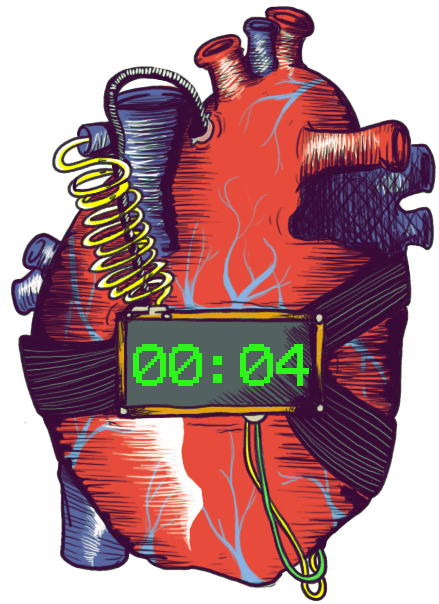Katwa hugged his family goodbye and left home for the airport. It was a three-day work trip out of town. The rest of the trip went something like this:
Katwa: Hey dear, I have arrived at the airport on time.
Maria: Safe travels dear
Katwa: Sweetie, we are boarding
Maria: Praying for a safe journey dear
Katwa: Dear, we have landed
Maria: We thank God for a safe journey. Enjoy your trip
Katwa: My dear, I have reached the hotel
Maria: Sawa sweetie. Hope it is beautiful
Katwa: Yes sweetheart, it is beautiful. I will bring you here one day
Maria: Wow my dear, I will look forward to it (mark you this promise has been repeated countless times among many others that never actually follow through)
Katwa: Dear, I am going out to dinner with my friends
Maria: Enjoy my dear
After dinner, Katwa called Maria to check how her day had been and tell her how it went. He wished her good night and the cycle began again in the morning. What happens when it is your turn to travel? Yep…you have to update them in return and to the same extent otherwise, they will start “wondering” what is going on with you. Are you hiding something? Are you up to no good? Don’t you love them enough? When it was Maria’s turn to travel, Katwa would call to find out which friends she was with, how dinner was going on, and how her friends were doing because he really cared about her friends. This kind of love sounds like a dream come true, right? Well, yes it does, but…..
Welcome to love bombing; a pathological form of relationship where an individual idealizes their partner and barrages them in intense ‘all good’ love and affection. This behavior occurs in relationships in which one partner’s self-worth is so low they overcompensate with love bombing. This is done so that they can receive the reciprocated love and affection they need to maintain their self-worth. It is also common in narcissistic relationships. In love bombing, the needy partner gives an overabundance of love, affection, and attention, often accompanied by lots of false promises. It is meant to develop emotional, physical, or financial dependence on them by you as their partner.
Although we feel as if the love-bombing is a sign of devotion and love, the love-bomber engages in ‘loving’ behaviors for their own personal gratification and self-inflation. It is always about them. Initially love bombing might feel good because it leaves you feeling like you are truly important and valued. But is unhealthy and unsustainable, tending to become overwhelming to the person receiving it. It is also taxing because it comes with the expectation that you will maintain the same “level” of loving back.
An additional trait that occurs with love bombing is too much too soon. The love-bomber moves to give you access to too many parts of themselves too soon and to very large extents eg give you their car keys by the second date. They could also have alternating cycles of loving and dry spells. They shower you with lots of love and affection, say all sorts of sweet things to you then go into a dry spell of silence and withdrawal. This is meant to create a longing in you for that great moment when they were very loving towards you. So the next time they waltz back into your life, you are so happy to have them back you miss the red flags staring at you.
The danger with love bombing is that when the love and affection is withdrawn, we develop a sense of unrequited love that causes us to feel betrayed and heartbroken. We become afraid of losing this “loving” person and therefore act in our desperation to return the relationship where it once was. We reach out more, tolerate more, overlook more mistreatment, justify and rationalize more disrespect. The cycle repeats itself over and over again, leaving the victim depleted and dependent on the love-bomber for esteem, validation, stability, and affection. The relationship becomes like a glue rat trap with morsels of food aka love bits that attract you and once you are in: you are stuck.
So, what do we do if we think we are being love-bombed? First, it calls for a heightened level of self-awareness to be able to recognize this behavior. That is why we are discouraged from entering into serious relationships when we are hurting, are emotionally unsettled eg after a break-up because our emotional sensors are not optimally functioning. If we suspect that we are being love-bombed, it is recommended that we step back to gain and objectively evaluate the relationship. We could take that time to read about it, journal or talk to people we trust or a therapist about it. We can then clearly articulate what the relationship makes us feel and what our expectations are.
Once we gain a clear perspective, we then talk to our partner about our concerns and expectations. They may respectfully listen, validate our feelings and work with us to restore balance in the relationship. This is the healthy way to go about it and will result in an improvement of the relationship.
They could also invalidate our feelings, calling us sensitive, petty, and not loving enough. They may not take it positively and could have explosive reactions. This is a warning that their form of attachment is toxic and will only get worse. Based on the reaction, we can then decide at this time whether to stay or move on before we overinvest ourselves in the relationship. It is advisable to hold off sexual relations as they can cloud our ability to make rational decisions to leave at this point, sucking us deeper into the vortex of toxicity.
We need to develop a healthy sense of self-esteem that allows us to say no to anything that hurts us or seeks to emotionally drain or intoxicate us.




